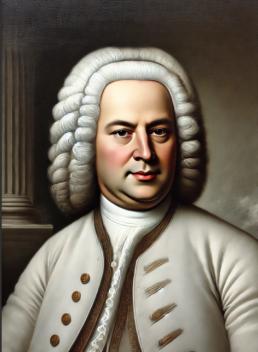Johann Christian Bach

Johann Christian Bach, the youngest son of Johann Sebastian Bach, was born on September 5, 1735, in Leipzig, Germany. Known as the "London Bach" due to his successful career in England, he played a significant role in the transition from the Baroque to the Classical era.
J.C. Bach received his early music education from his father and later from his half-brother Carl Philipp Emanuel Bach in Berlin. In 1756, he moved to Italy, where he studied with Padre Martini in Bologna and converted to Catholicism. His Italian period was marked by the composition of several operas and sacred music, establishing his reputation as a versatile composer.
In 1762, Bach relocated to London, where he quickly became a central figure in the city’s musical life. He composed operas, symphonies, and chamber music, and was a key influence on the young Wolfgang Amadeus Mozart. Bach's music was known for its elegance, melodic charm, and innovative orchestration, which helped shape the emerging Classical style.
Bach, together with Carl Friedrich Abel, established a successful concert series in London, which contributed to the development of the public concert tradition. Despite his successes, financial difficulties plagued his later years, and he died in relative obscurity on January 1, 1782.
J.C. Bach's legacy lies in his role as a bridge between musical eras and his influence on later composers, particularly Mozart. His contributions to the development of the Classical style and public concert life make him a significant figure in music history.
